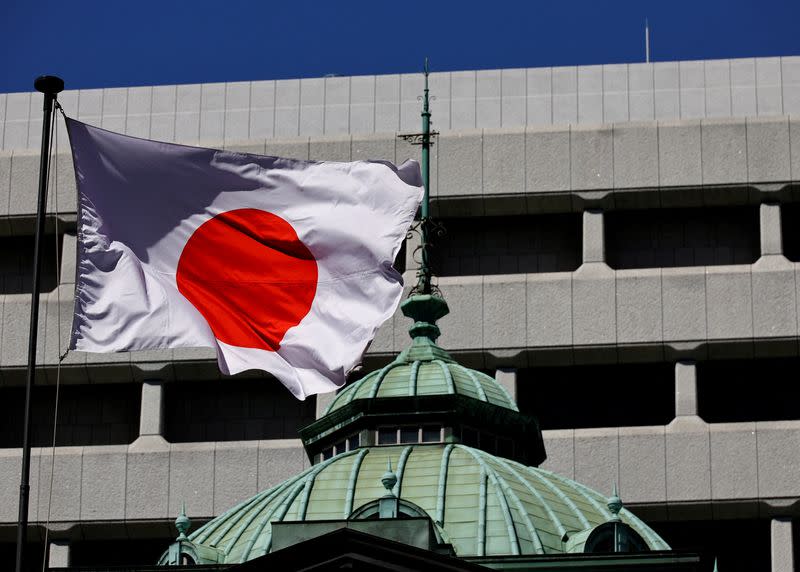Morning Bid: Japan inflation eyed; yen and yuan slide

By Jamie McGeever
(Reuters) - A look at the day ahead in Asian markets.
Japanese inflation goes under the microscope on Friday, with scrutiny likely to be magnified more than usual given the yen's slide toward record lows, rising oil prices and the Bank of Japan's cautious approach to normalizing monetary policy.
Sentiment across the continent on Friday may be clouded by Thursday's fall in U.S. stocks and bonds and rise in the dollar, tempting investors to lock in gains - Asian stocks hit a two-year peak this week, and world stocks hit all-time highs.
As seems to be the case more and more lately, China is the gloomy exception. Blue chip shares slid to a two-month low on Thursday and are on track for their fifth weekly loss in a row, and the yuan slumped to its weakest level against the dollar since November.
Trade tensions between China and the West continue to unnerve investors. German Economy Minister Robert Habeck stirred the pot on Thursday, saying in Seoul that South Korea and Germany both aim to diversify away from China, broaden their raw material suppliers and reduce their dependence on critical products.
Oil prices continue their march higher, with U.S. WTI and Brent crude futures both hitting their highest levels since April 30. WTI is now up 13.5% from its June 4 low and has risen in all but two of the 11 trading days since then, and Brent is up 12% and has risen in all but three sessions.
It's early days, but central banks will be aware of the inflationary impact a prolonged rise in oil prices could have, none more so than the Bank of Japan.
With the yen near record lows against the dollar, the rising dollar-denominated price of oil is crucial for a country that imports well over 90% of its energy.
The yen fell back to 159.00 per dollar on Thursday, deep in 'intervention' territory. Could traders push it closer toward 160.00 level and really test Tokyo's resolve?
The U.S. Treasury on Thursday said no major trading partner appeared to manipulate its currency last year, but it added Japan to a foreign exchange "monitoring list," alongside other Asian countries China, Vietnam, Taiwan, Malaysia and Singapore.
The latest inflation figures from Japan, meanwhile, are expected to show annual core inflation stripping out food and energy likely rebounded in May to 2.6% from 2.2% in April. Headline inflation, at 2.5% in April, likely rose also - Goldman Sachs economists are penciling in 2.9%.
Friday's Asia/Pacific regional calendar also sees the release of the first PMI reports for June, namely preliminary readings of factory and services activity this month in Japan, Australia and India.
In the corporate world, Softbank Group holds its annual general shareholders meeting.
Here are key developments that could provide more direction to markets on Friday:
- Japan inflation (May)
- Japan, Australia, India PMIs (June)
- Softbank AGM
(Reporting by Jamie McGeever; editing by)

 Yahoo Finance
Yahoo Finance 